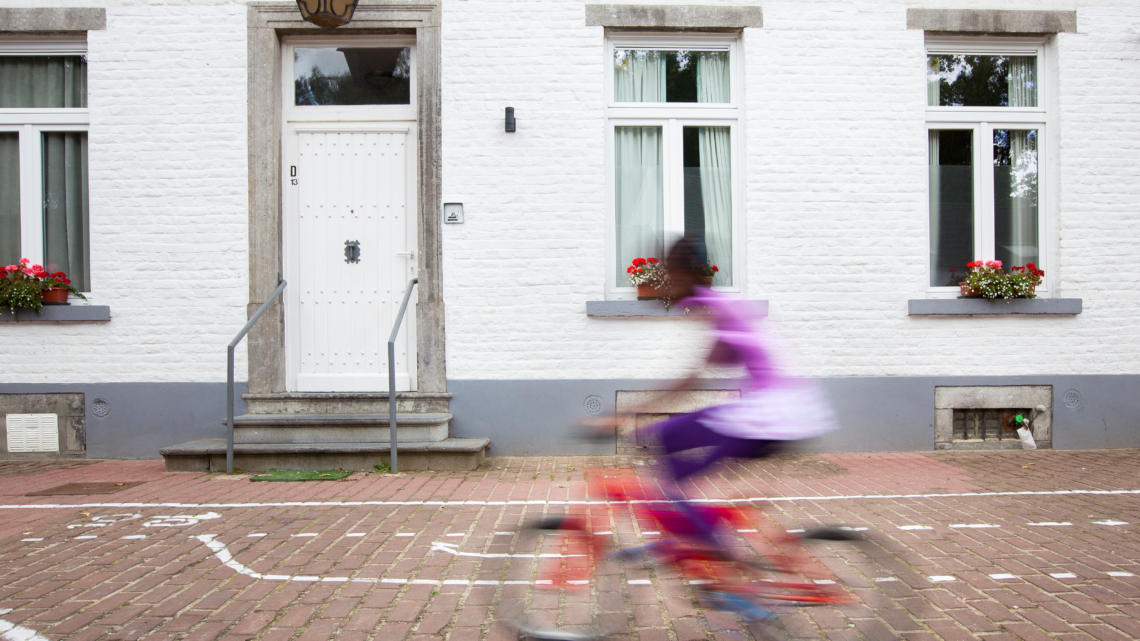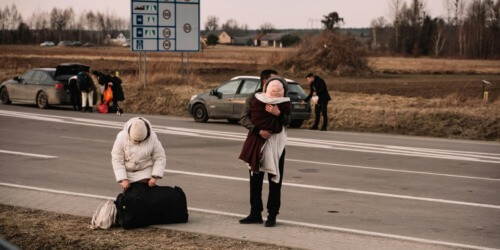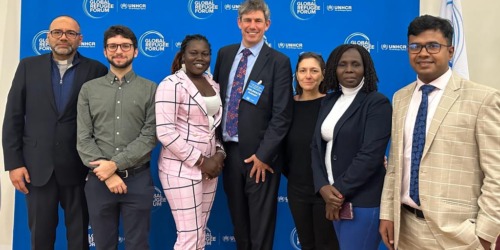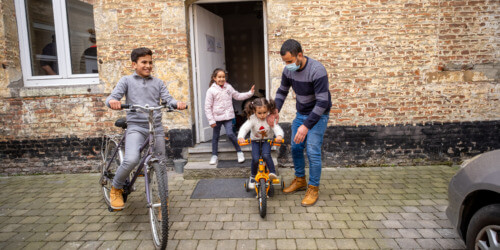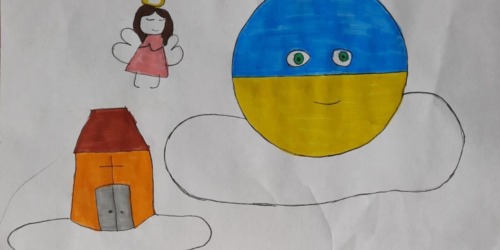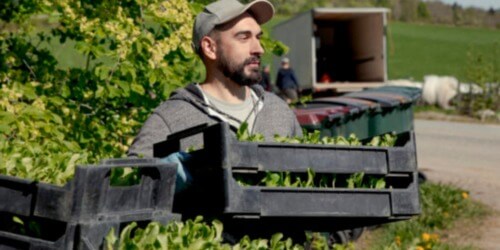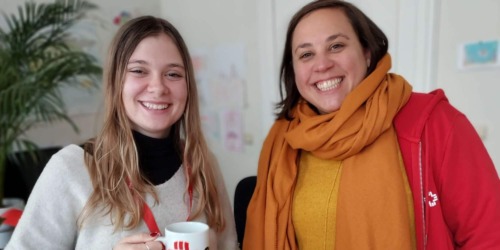“Amadou! Amadou! A-ma-douuuu!” Two girls shout their little brother’s name while keeping their eyes wide open in the hope that he reveals his hiding place. Behind a wall, a small head appears. He runs away quickly like a hare with his two big sisters in pursuit. While the children play carefree, the mothers discuss and share their experiences as women living in Belgium and to be a woman in their country of origin.
BETWEEN HEAVEN AND EARTH
“Without papers you are stuck somewhere between heaven and earth,” says Mariam*. “I cry a lot yet my expectations are low. I just want to live simply. In Tunisia, there is nothing left for me.” These women’s futures are uncertain because they are not yet recognized refugees. However, they are very likely to obtain a refugee status since 86% of women who have left Louvranges in 2018 obtained status and residence permits.
Claudia*, a native of Congo, no longer faces uncertainty because she just found out that her request for international protection was accepted after two years of waiting. She is moving out next week. “I am protected, I will have a roof over my head, food…everything I need. But others don’t have all of that, others live on the streets. So this means a lot to me.”
Fatoumata* knows what she’s talking about… for she was detained in a detention center because she didn’t have the right documents. “I have contacts with other Guineans. There are some who live without papers, without anything, but who are too afraid to return to the country. Others were recognized, others died or moved to another country.”
POLITICAL OR INDIVIDUAL CHANGE?
Equipped with big colored felt-tip pens, the children draw trees, flowers, and an elephant that now adorn the room where the mothers gradually reveal their stories. Their exile stories are very heavy and their difficult past has rendered them more fragile and vulnerable. But they do not all see the same causality: “The problems we women encounter depend on our social class,” says Valentine*. “In Rwanda, the other problems are mainly political. No one dares to denounce that.”
“Politics are the basis of everything,” Claudia* says out loud. “When a law says you can’t fly, people don’t fly. If the law forbade husbands from beating their wives, men would get scared. Laws and customs influence people.”
“We are talking about governments but … in our country, it starts with families,” adds Fatoumata who is outraged. “Sometimes a woman is beaten in public in the market. If the man who beats her says he is her husband, then no one will defend the woman!”
“In the past, all this was normal for me… I even suffered from it,” continues Fatoumata. “I was cut but I didn’t want that to happen to my daughter. I was so scared. There are girls who are dying you know…many women have already left the country but we are trying to keep in touch with those who remain. I feel like things are starting to happen.”
ISOLATED WOMEN
Chantal* is sitting on the floor with her son. He continually grabs new “toys” like plastic bottles. “As a single woman, you lose your rights,” she says. “In the Congolese province where I come from, a divorced woman is singled out while a man can remarry without worries. Your manager can even say ‘oh you’re not married, so I suggest you become my mistress.’ Just like that, nothing else, and you have to accept or change jobs.”
Each of these women had very good reasons to leave their country of origin, whether the reasons were personal or political. Since they are women, they are vulnerable, in their country of origin, during their exile, or in Belgium. “Some problems affect only women,” says Chantal. “Some people only see you as a woman. You’re just a woman.”









